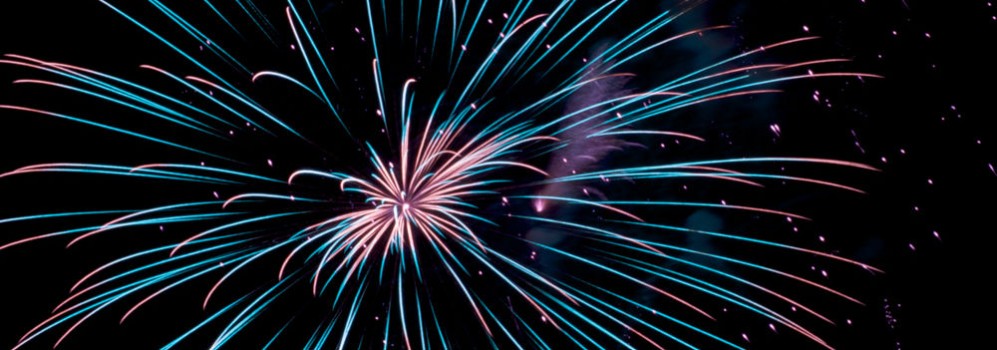Continuing the Works of Fire
With fireworks sales reclining after the Fourth of July, Arbitrage Magazine takes a look at the resilient industry that is still booming despite the numerous restrictions.
By: Jaron Serven
In high school, I had a neighbor who loved fireworks, and on a particular July evening he set some up for us to light.
We oohed and ahhed — until one of us put a small mortar into a tube too large and lit the fuse.
I remember watching in a mix of horror and detached amusement as the small fireball just hung there ten feet above the ground. It was a perfect moment, when all of us standing in the backyard realized at once we were in serious trouble.
The firework exploded in a shower of sparks and a concussion of sound, all of us diving for cover, but no one was hurt — although I can probably attribute some of my hearing loss to that incident directly.
In the United States, the Fourth of July means more than commemorating a bunch of slave-owners announcing their secession from the United Kingdom because they didn’t want to pay taxes.
It’s about picnics with our families and stringing up the national colors to prove our collective patriotism. For a lucky few, we get to sit and contemplate who we are as a country and how we can become better to each other and to the world.
Mostly, though, the Fourth of July is a build-up to the evening festivities, where we sit on our lawns or in the open hatchbacks of our cars and watch the night sky as it’s lit up with fireworks.
In 2002, the fireworks industry in the U.S. reported a record-high revenue of $725 billion, a number attributed mostly to “consumer class” fireworks.
Consumer class fireworks are classified in the States under the supervision of the Consumer Product Safety Commission (CPSC), which designates fireworks according to their composition, quantity of pyrotechnic material, and their stability under heat and pressure.
If the CPSC finds a firework too volatile, it will be classified as “professional grade”, which requires a federal license to purchase and operate.
A look at the numbers shows that this particular corner of the fireworks market has almost doubled in size over the past decade.
And yet the U.S., like most developed nations around the world, sets limits even on the types of consumer class fireworks which can be used, and those laws can differ from state to state.
For those of you unaware, the U.S. operates within different levels of government, the most primary being the federal level, or the complete and unifying law of the land. But there is also state law, which can be different from the federal level.
Even if the federal government declares consumer fireworks legal, the individual 50 states have a say in what’s allowed or not. As early as 2012, four states outright ban all consumer fireworks and another four allow only sparklers and other novelty products.
This makes all of the restrictions and laws regarding the use and distribution of fireworks in the U.S. almost too much to innumerate.
The ultimate testament to that point may come from Angus Loten at Inc.com: “In general, the legal amount of explosive material in retail fireworks is no more than 50 milligrams, about half the size of an aspirin, according to the APA.”
Which raises the question: How can people still make a business out of selling consumer fireworks in the U.S.? How can you make a profit at selling a product that is legal in some states but not in others?
For many fireworks retailers, it’s pretty simple: Sell where it’s legal and use the Fourth of July — and the U.S. legal system — as an advantage.
Phantom Fireworks, one of the largest retail stores for consumer fireworks in the U.S., sets up no shops in states where fireworks are illegal. A search on their website for fireworks in New York brings a warning, “New York law prohibits the transportation, sale, possession, or use of fireworks in New York without a valid permit.”
Other retailers will set up independent operators in tents where consumer fireworks are legal, during the weeks before and after the big patriotic holiday, where apparently most of the fireworks will sell out.
Still, regulations don’t prevent residents of New York from receiving Phantom Fireworks’s “bonus chart” in the mail, and with a store just over the border in Pennsylvania, it’s up to the law to keep up with what citizens do with their spare time and money.
I’ve lived in New York over half of my life now, and despite all of the regulations, you can still hear the pops and zings of consumer fireworks coming from backyards come Fourth of July.
Still, those responsible members of society should be able to have their fun, and fireworks retailers will be there to see them through to good combustable times for the foreseeable future.
Jaron Serven graduated last year with a master’s degree in English from the University of Albany and is now a freelance writer and editor in the Greater New York area. Follow him on Twitter at @j_serv and check out his music and culture blog at www.jaronserven.com.
Feature image courtesy of bayasaa
Banner image courtesy of jeff_golden































Share the post "Continuing the Works of Fire"